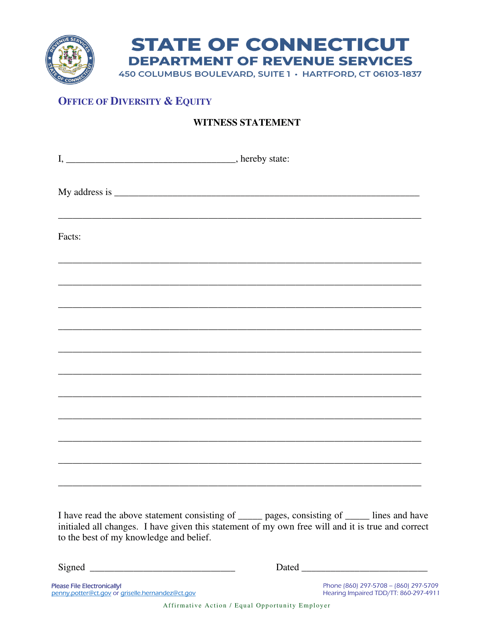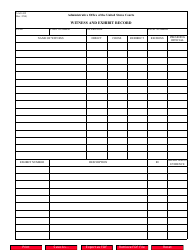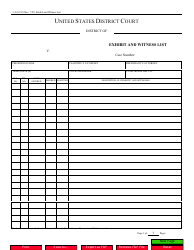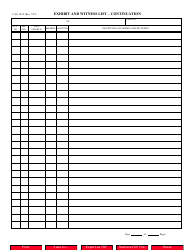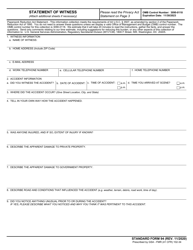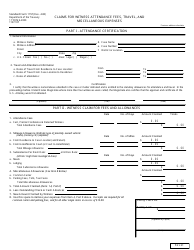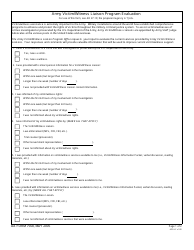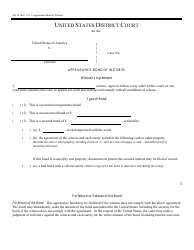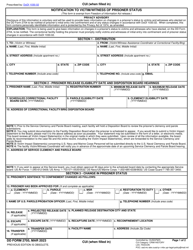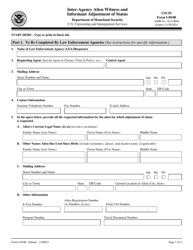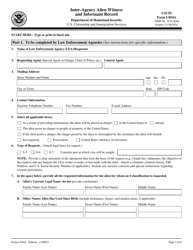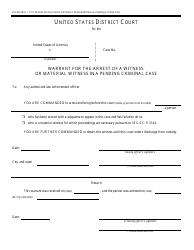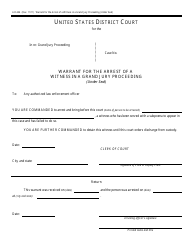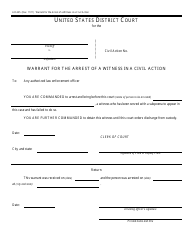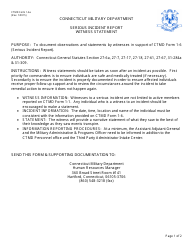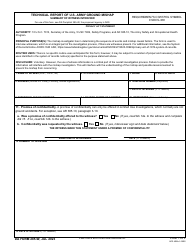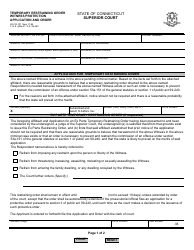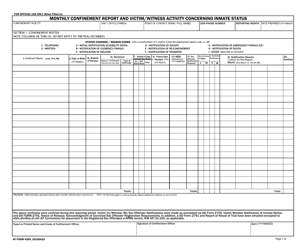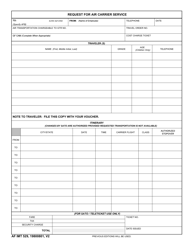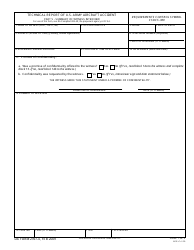Witness Statement - Connecticut
Witness Statement is a legal document that was released by the Connecticut Department of Revenue Services - a government authority operating within Connecticut.
FAQ
Q: What is a witness statement?
A: A witness statement is a written account of someone who has witnessed an event or incident.
Q: Why are witness statements important?
A: Witness statements are important because they provide firsthand accounts of events, which can be used as evidence in legal proceedings.
Q: Who can provide a witness statement?
A: Anyone who has witnessed an event can provide a witness statement.
Q: What should be included in a witness statement?
A: A witness statement should include the witness's full name, contact information, a description of the event or incident, and any relevant details or facts.
Q: How should a witness statement be written?
A: A witness statement should be written in clear and concise language, avoiding speculation or opinions.
Q: Can a witness statement be used in court?
A: Yes, a witness statement can be used as evidence in court.
Q: Are witness statements confidential?
A: In most cases, witness statements are not confidential and may be shared with other parties involved in the legal proceedings.
Q: Can a witness statement be challenged or questioned?
A: Yes, a witness statement can be challenged or questioned by opposing parties during cross-examination in court.
Q: What is the role of a witness in legal proceedings?
A: The role of a witness in legal proceedings is to provide their firsthand account and observations of an event or incident.
Q: How should a witness prepare for giving a statement?
A: A witness should review their memory of the event, gather any relevant documents or evidence, and be prepared to provide accurate and honest information.
Q: Should a witness statement be notarized?
A: Notarization of a witness statement is not required, but it may add credibility to the statement.
Q: Are witnesses protected from retaliation?
A: In some cases, witnesses may be protected from retaliation through laws and regulations, such as whistleblower protection laws.
Q: What should a witness do if they are intimidated or threatened?
A: If a witness feels intimidated or threatened, they should report the incidents to the appropriate authorities or their legal representative.
Q: Can a witness refuse to give a statement?
A: In some cases, a witness may have the right to refuse to give a statement based on legal privileges, such as attorney-client privilege or the Fifth Amendment right against self-incrimination.
Q: Should a witness consult an attorney?
A: It is advisable for a witness to consult an attorney, especially if they have concerns about their legal rights or protections.
Q: What happens if a witness lies in their statement?
A: If a witness is found to have lied in their statement, they may face legal consequences, such as perjury charges.
Q: Can a witness statement be changed or amended?
A: A witness statement can be changed or amended if additional information becomes available or if the witness realizes they made an error in their initial statement.
Q: How long should a witness keep a copy of their statement?
A: A witness should keep a copy of their statement until the legal proceedings are concluded, as it may be needed for reference or further questioning.
Q: Do witnesses have any rights and protections?
A: Witnesses have rights and protections under the law, such as the right to be treated with respect and the right to have their safety and well-being considered.
Q: Can a witness statement be made anonymously?
A: In some cases, a witness statement can be made anonymously if the witness has a valid reason for not wanting to disclose their identity.
Form Details:
- The latest edition currently provided by the Connecticut Department of Revenue Services;
- Ready to use and print;
- Easy to customize;
- Compatible with most PDF-viewing applications;
- Fill out the form in our online filing application.
Download a printable version of the form by clicking the link below or browse more documents and templates provided by the Connecticut Department of Revenue Services.
